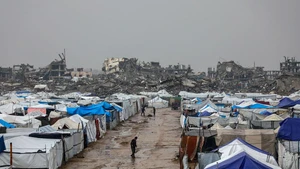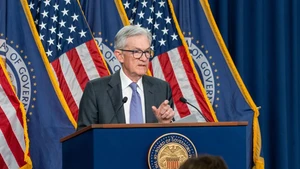At the end of November, OPEC and its partners (OPEC+) decided to extend the agreement to cut voluntary production by 2.2 million barrels/day until the end of the first quarter of 2024 to support oil prices.
Specifically, Saudi Arabia will extend the voluntary production cut of 1 million barrels/day from July this year until the end of the first quarter of 2024. Russia will cut 500,000 barrels/day by March 2024, up from its current level of 300,000 barrels/day.
Meanwhile, other OPEC+ countries pledged to cut production to a lesser extent in the first quarter of 2024, with Iraq (cutting 211,000 barrels/day), the United Arab Emirates (163,000 barrels/day), Kuwait (135,000 barrels/day) and Oman (42,000 barrels/day). Algeria also committed to voluntarily cutting oil production by 51,000 barrels/day in the first quarter of 2024, according to which Algeria’s oil production will decrease to 908,000 barrels/day in the first three months of next year.
The appeal to cut production to support oil prices has faced opposition from Angola. Angolan Oil Minister Diamantino Azevedo announced that the country will leave OPEC because it is no longer beneficial to the country.
In November, Angola's representative to OPEC, Estevao Pedro, said that Angola was not satisfied with OPEC's 2024 production target and Angola had no plans to follow such a plan.
OPEC+’s ministerial-level meeting last November was stalled due to disagreements regarding the mining output quota that OPEC+ allocated to Angola. The meeting was delayed for several days due to disputes between countries over the current levels of output cuts and possible additional cuts.
OPEC+ was unable to agree to cutting production for all 23 members of the group. Joining OPEC in 2007, Angola's oil production reached about 1.1 million barrels per day, compared to OPEC's 28 million barrels daily. In addition to Angola, Nigeria also disagreed with the exploitation quota given by OPEC+.
After Angola's announcement that it would leave OPEC, oil prices dropped despite a brief increase concerning the risk of disruption to trade and shipping activities following attacks by Houthi forces in the Red Sea.
According to analyst Ipek Ozkardeskaya of Swissquote - a Swiss banking group specialising in providing financial services and online transactions, the most recent discussions show a rift within OPEC+.
In a newly published report, credit rating agency Fitch Ratings said that the weak growth momentum of the global economy in 2024 could prompt OPEC+ to cut production further. Oil-exporting countries in the Middle East-North Africa (MENA) region are expected to witness strong economic growth in 2024, mainly thanks to the buoyant growth of non-oil economic activities.
According to Fitch Ratings, countries in MENA will stabilise their oil output in 2024, following OPEC+'s decisions to cut production in 2023. During his visit to Saudi Arabia in early December 2023, Russian President Vladimir Putin met with Crown Prince Mohammed bin Salman Al Saud, in which he agreed to continue cooperation within OPEC+, contributing to stabilising the world energy market.
World oil prices have fallen since October this year amid concerns about oversupply surrounding gloomy global economic prospects. Analysts had expected bigger production cuts from oil-producing countries next year to prop up oil prices. However, oil prices might not increase or even plummet. Internal disagreements and calls for a transition from fossil energy pose many challenges and pressure OPEC's leadership’s efforts to stabilise the “black gold” market.
















